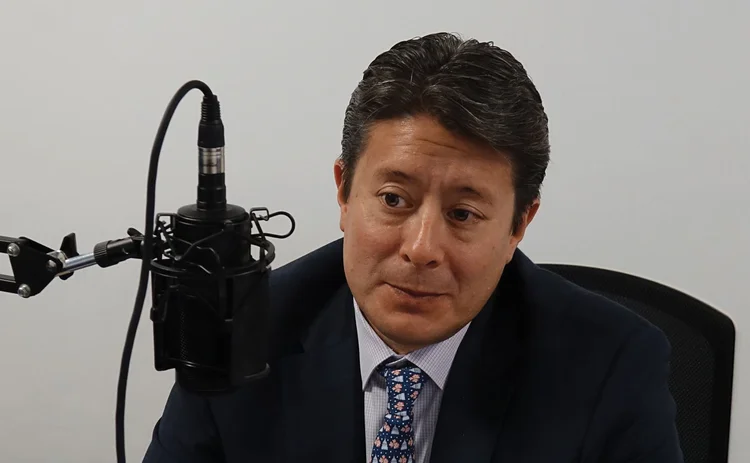
Risk.net podcast: OCC’s Fennell on Nasdaq breach, crypto and ‘skin in the game’
Clearing house is “seriously considering” contributing to its own default waterfall

One of the last large clearing houses holding out against contributing to its default fund has had a change of heart.
John Fennell, chief risk officer at the Options Clearing Corporation, says the Chicago-based central counterparty (CCP) is “seriously considering” chipping in to its own default fund.
“We do have our own capital up to absorb operational risks, but we are also in the process of considering whether or not there is a sufficient portion of the default pool that the CCP should put up as skin in the game,” says Fennell. “It is something that we are seriously considering.”
In a Risk.net podcast, Fennell, who has been with OCC since 1993, says it is in the early stages of understanding what a properly sized contribution of its own capital into its default fund would look like. Besides the default fund contribution, Fennell also talks about the Nasdaq Commodities default, margin breaches the CCP faced in the beginning of the year and the role clearing houses play in the growing crypto markets.
According to its second-quarter disclosures, OCC’s default fund is $15.4 billion. OCC implemented changes to its default fund methodology last month, which did not include a contribution of its own capital. In speaking to Risk.net at the end of July about the changes, Fennell gave no indication the CCP was contemplating contributing to its clearing fund.
Fennell says no specific event prompted OCC to consider the change. Instead, it was a matter of demonstrating to clients the clearing house takes part in best practices. Rival CCPs, such as CME, Eurex and LCH, all subsidise their default funds.
“I think it has always about trying to make sure that market participants have the top level of confidence in their CCP,” he says. “We are one of the few that do not contribute to skin in the game, and providing that same alignment of incentives just reinforces and makes our framework stronger.”
One important difference between OCC and some of its peers is the fact it is a utility model and not demutualised, like many other clearing houses, Fennell points out. Clearing members sit on OCC’s board and play an important part in setting its risk appetite, he adds.
“Making sure that market participants whose resources are exposed through that mutualised pool need to have a seat at the table,” says Fennell. “I think that is number one, and the strongest point of ensuring that those resources are adequately protected and the risk framework is sufficient. Skin in the game is a supplement to that.”
Fennell says no hard timeline has been set for when OCC would begin contributing to its clearing fund. Understanding how to properly calibrate the amount is the real challenge, he adds.
Currently, OCC is evaluating how other CCPs have gone about sizing their contribution.
“It is still in the early stages,” says Fennell. “We are looking to create our own proposal, and then we will clearly have that outreach for our members.”
Interview by Dan DeFrancesco
Index
2:27 – Liquidity risk
6:13 – Nasdaq default
13:30 – Default auctions
16:25 – Individual direct clearing members
18:15 – Default fund changes
23:23 – Skin in the game
27:20 – Margin breaches
32:00 – CCPs’ role in digital currency
38:27 – Biggest concerns for a clearing house CRO
To hear the full interview, listen in the player above or download here.
Only users who have a paid subscription or are part of a corporate subscription are able to print or copy content.
To access these options, along with all other subscription benefits, please contact info@risk.net or view our subscription options here: http://subscriptions.risk.net/subscribe
You are currently unable to print this content. Please contact info@risk.net to find out more.
You are currently unable to copy this content. Please contact info@risk.net to find out more.
Copyright Infopro Digital Limited. All rights reserved.
As outlined in our terms and conditions, https://www.infopro-digital.com/terms-and-conditions/subscriptions/ (point 2.4), printing is limited to a single copy.
If you would like to purchase additional rights please email info@risk.net
Copyright Infopro Digital Limited. All rights reserved.
You may share this content using our article tools. As outlined in our terms and conditions, https://www.infopro-digital.com/terms-and-conditions/subscriptions/ (clause 2.4), an Authorised User may only make one copy of the materials for their own personal use. You must also comply with the restrictions in clause 2.5.
If you would like to purchase additional rights please email info@risk.net
More on Comment
Malkiel’s monkeys: a better benchmark for manager skill
A well-known experiment points to an alternative way to assess stock-picker performance, say iM Global Partner’s Luc Dumontier and Joan Serfaty
The state of IMA: great expectations meet reality
Latest trading book rules overhaul internal models approach, but most banks are opting out. Two risk experts explore why
How geopolitical risk turned into a systemic stress test
Conflict over resources is reshaping markets in a way that goes beyond occasional risk premia
Op risk data: FIS pays the price for Worldpay synergy slip-up
Also: Liberty Mutual rings up record age bias case; Nationwide’s fraud failings. Data by ORX News
What the Tokyo data cornucopia reveals about market impact
New research confirms universality of one of the most non-intuitive concepts in quant finance
Allocating financing costs: centralised vs decentralised treasury
Centralisation can boost efficiency when coupled with an effective pricing and attribution framework
Collateral velocity is disappearing behind a digital curtain
Dealers may welcome digital-era rewiring to free up collateral movement, but tokenisation will obscure metrics
Does crypto really need T+0 for everything?
Instant settlement brings its own risks but doesn’t need to be the default, writes BridgePort’s Soriano







